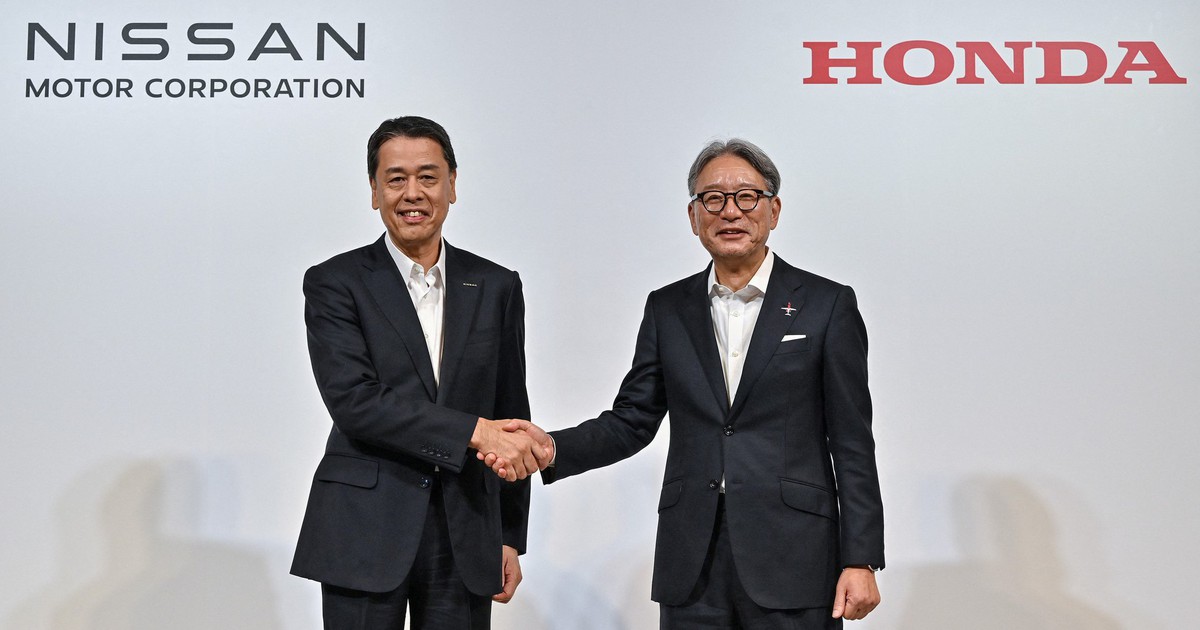The Social Democratic Chancellor, Olaf Scholz, and the Christian Democrat Friedrich Merz, rivals in the February 23 elections in Germany, apparently oppose each other on almost everything, but they agree on something fundamental. And they both want the electoral campaign to be a matter of two. Of them two. A duel Scholz against Merz, a clear choice for voters.
The problem with this approach is that there are not just two candidates, but several more. The other problem is that both rivals, with very different personalities and opposite recipes to get the country out of the morass – more investments and debt for the social democrats; less taxes the Christian Democrats―, are possibly condemned to understand each other after the elections and govern together in a grand coalition.
The latest survey by the Forsa institute, published this Tuesday, places the Christian Democratic Union/Christian Social Union (CDU/CSU) of Merz in first position, with 30% of the vote. It is followed with 19% by the far-right Alternative for Germany (AfD), with Alice Weidel as its candidate. In third position, Scholz’s Social Democratic Party (SPD) with 17%. The Greens would get 13%. According to this survey, no other party (neither the liberals nor the populist left) would overcome the 5% barrier to enter the Bundestag.
“The idea is that Social Democrats and Christian Democrats dominate the debate, a duel between Scholz and Merz,” says Social Democrat deputy Nils Schmid, in a conversation in the Parliament cafeteria. “The race is very open,” confides Schmid, also the SPD’s Foreign Affairs spokesperson in the Bundestag and a candidate for re-election in his state, Baden-Württemberg.
German democracy, in which almost everything is predictable and scheduled, even political crises, is made of rituals. After the Bundestag withdrew confidence in Scholz on Monday and opened the way to call early elections, this Tuesday came the time for the electoral programs.
Tax incentives and minimum wage
The SPD proposes tax incentives for investments in the industry, reinstating subsidies for electric cars and increasing the minimum wage from 12 to 15 euros per hour. Also raise taxes on the richest, reduce VAT on food from 7% to 5% and limit energy rates.
The CDU/CSU wants to clearly mark the conservative profile and that of its leader Merz, far from the centrism of the Christian Democrat Chancellor Angela Merkel. He defends a tough line on immigration and proposes transferring asylum seekers to countries considered “safe.” He also promises to abolish the gender self-determination law that Scholz’s coalition adopted and which has just come into force.
In economic matters, the Christian Democrats promote a general reduction in taxes. And they want to suppress citizen income and the so-called solidarity contribution, that people with higher incomes pay to equalize living conditions between West and East Germany. They believe there is room to save and find money for investments without having to exceed the strict debt limit prescribed by the Constitution. Both the SPD and the Greens want to make these rules more flexible.
The debate on making fiscal rules more flexible was the trigger in November for the breakdown of the coalition between Scholz and the liberals of Finance Minister Christian Lindner, apostles of austerity. And it will be key after the elections in a country that has been stagnant for five years, with an industrial crisis that leads companies like Volkswagen to contemplate the closure of factories and with aging infrastructure.
“There will be a real debate of ideas on economic and social policy,” predicts social democrat Schmid. “And it will be about the personality of the main candidates: Merz against Scholz,” adds the deputy, who anticipates his party’s strategy: portraying the Christian Democrat as a volatile politician, with no government experience, despite decades of parliamentary experience, and with an image of a cold and unfriendly man for many voters. “We will try to establish a clear contrast with Scholz’s personality.”
Candidates seek hand-to-hand combat. They fight with a tone that in other countries (France, Spain, the United States) could seem anodyne, but that in the Germany of consensus, good manners and reasoned arguments draws attention for its stridency.
On Monday, in the debate on the trust issue, Merz portrayed Scholz as a chancellor without international influence, silent and marginalized during summits. “It’s embarrassing,” he snapped, “how you behave in the European Union.”
Scholz later fired on the ZDF channel: “Fritz Merz talks nonsense.” The diminutive Fritz and the word in the North German variety that the chancellor used to talk nonsense (Tünkram) are of a familiarity that may be out of place here. And it provoked indignant reactions among conservatives.
As is usual in Germany, no party will be able to govern alone and, if Merz wins, he will have to look for one or more allies. Excluded, by the cordon sanitaire, the extreme right, in favor of removing Germany from the EU and the euro, other options remain. The most likely, an alliance of the Christian Democrats with the Social Democrats as a junior partner, the grand coalition. Or a coalition, unprecedented on a federal level, between Christian Democrats and Greens.
Scholz has said he will not be vice chancellor under a hypothetical chancellor Merz. If he loses, he will leave. But, no matter how antagonistic the programs and personalities may seem, Social Democrats and Christian Democrats know that it is very possible that they will end up governing together as they did during the Merkel years.









